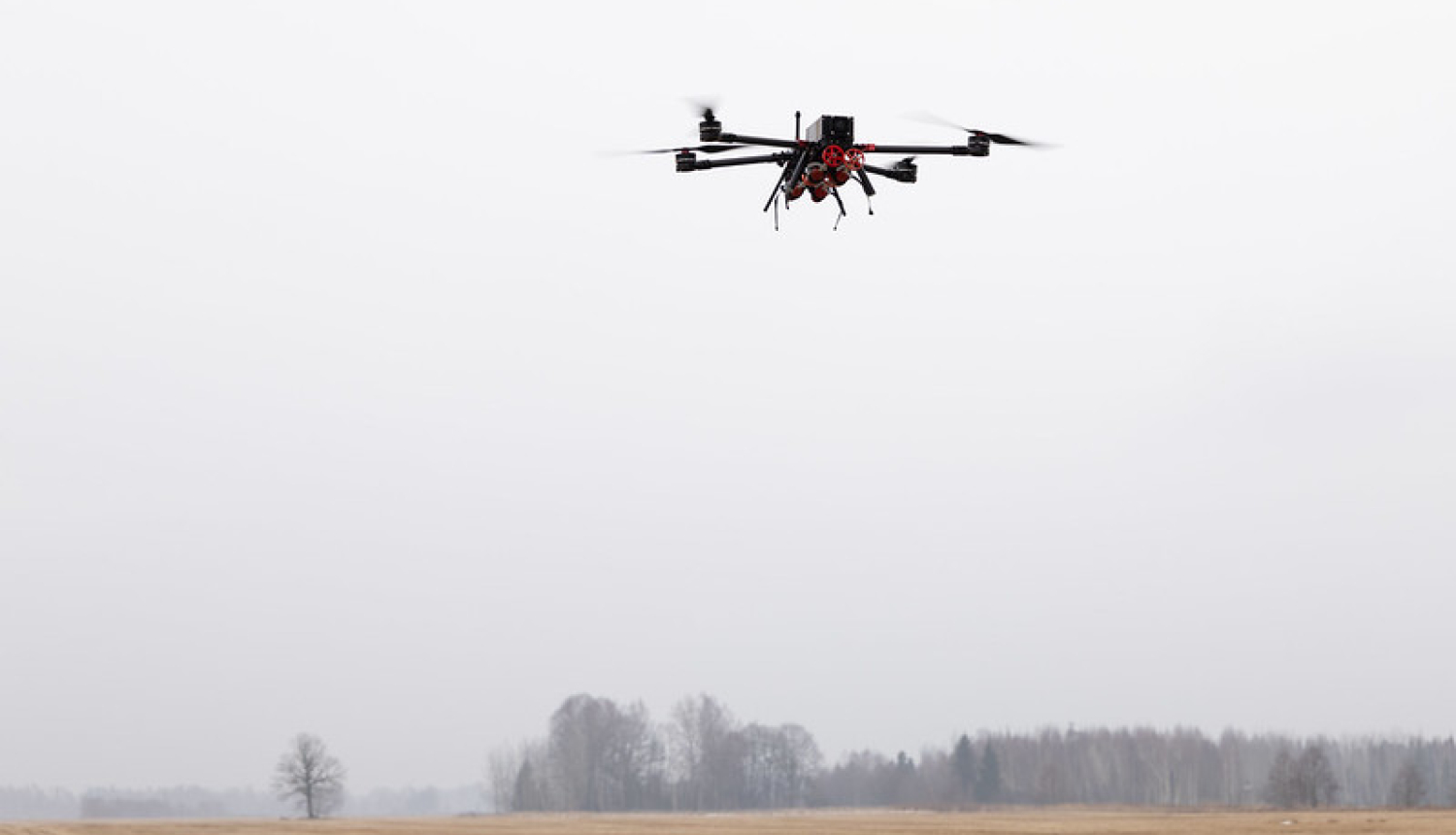BAKU, Azerbaijan, July 1. Latvia’s Foreign Minister Baiba Braže praised the country's business community and innovation sector in remarks made yesterday, noting international recognition of Latvia’s achievements in emerging technologies such as quantum computing, ICT, and drone technology, Trend reports.
“It is a privilege of my role to regularly engage with our entrepreneurs, learn about their breakthroughs, and test their innovations firsthand,” said Braže.
Throughout her official visits and participation in international conferences and forums, Braže frequently met with foreign politicians, investors, and business leaders to promote Latvia’s economic ties. She noted that Latvia’s technological advances are consistently met with interest and respect abroad.
Latvia’s evolving geopolitical context has stimulated the growth of its national defense industry, particularly in drone technologies. One of Latvia’s unique advantages, according to Braže, is its ample space and capacity for testing next-generation technologies, which has drawn manufacturers from allied countries to trial their drones in Latvia. The nation’s success in quantum technologies is also noteworthy, with algorithms developed by Latvian professors forming the basis of roughly 20 percent of the world’s quantum algorithms. “We are a ‘small quantum superpower,’” she emphasized.
Recent reports confirmed that Latvia has made significant progress in attracting foreign investment. According to the 2025 edition of Ernst & Young’s European Attractiveness Survey, Latvia led the Baltics in foreign direct investment (FDI) last year, with 33 new FDI projects launched, up 50 percent from 2023. These projects generated 1,937 new jobs, a 53 percent increase from the prior year. This marked Latvia’s best performance in both categories in the past three years.
The Foreign Investors’ Council in Latvia (FICIL) reported a sharp rise in Latvia’s investment appeal, from 1.9 to 3.0 on a 5-point scale. FICIL praised the Latvian government’s efforts to bolster the defense sector and maintain stability amid ongoing geopolitical uncertainty. The total stock of FDI in Latvia reached 26.3 billion euros at the end of 2024—1.4 billion euros more than the previous year, and about 50 percent of surveyed investors planned to continue investing in Latvia.
Despite these achievements, investors noted that Latvia suffers from an overly modest self-perception. “Many investors pointed to Latvia’s strong fundamentals—excellent infrastructure, engineering talent, and a democratic, open society—but also warned of excessive self-criticism and media negativity,” the FICIL report said. A mindset shift toward future vision and national confidence was strongly encouraged.
The Baltic states as a whole were described as “too modest” about their achievements. Latvia’s leadership in digital government services, Lithuania’s thriving fintech sector, and Estonia’s e-governance prowess were often more recognized abroad than at home. “The Baltics need to project pride and vision to inspire both their citizens and foreign investors,” the report concluded.
Latvia’s capital, Riga, was again named one of Europe’s top investment destinations by Financial Times, earning two awards in its 2025 “Cities and Regions of the Future” rankings.
Defense sector progress also earned praise from international partners. During joint Baltic foreign minister visits abroad, allies—including U.S. Secretary of State Marco Rubio and Secretary of Defense Pete Hegseth—commended Latvia and its neighbors for their defense investments, commitment to NATO, and support for Ukraine. Hegseth even called the Baltics “model allies.”
Latvia’s advancements in drone technology were particularly emphasized. The country co-leads the International Drone Coalition alongside the United Kingdom, an initiative now comprising 18 member states. Latvian drone manufacturers like Edge Autonomy and Origin Robotics have secured significant international investment and contracts.
Edge Autonomy, headquartered in the U.S. with a major production hub in Latvia, saw its revenue quadruple to nearly 80 million euros in 2023. Its profits rose over sixfold, reaching 29 million euros. The company recently entered a $925 million acquisition deal with U.S. space firm Redwire, signaling Latvia’s growing integration into global aerospace and defense supply chains.
Origin Robotics, a Latvian defense tech startup, received 4.5 million euros in funding from the European Defence Fund to develop a new portable UAV with laser targeting. It also secured 4 million euros in pre-seed investments and began exporting BEAK drone systems to the Netherlands.
Other prominent Latvian players include:
SPH Engineering: UAV control software used in 200+ countries
VIC TEC: Naval unmanned surface vehicles, presented at Eurosatory 2024
SUBmerge Baltic: Autonomous underwater drones with 7-day operation capacity
LMT: Military 5G testing site and NATO research collaboration
Natrix, Belss (Eraser), NEWT21, and Frankenburg Technologies: Various innovations in robotics, drone warfare, and missile systems
Latvia’s broader tech ecosystem also saw global success:
Aerones raised $62 million in funding and 4.4 million euros in EU grants for robotic wind turbine maintenance
Longenesis, a healthtech startup, won the “Expand North Star 2024” competition in Dubai
LMT and LVR Flote won a sustainability award for Baltic Sea 5G connectivity
Neamo, a student-founded environmental health startup, won multiple EU innovation prizes
Quantum technology was another standout field. Latvia remains the only Baltic state with a national quantum-secure communication network. Algorithms developed by University of Latvia professors Andris Ambainis and Aleksandrs Belov account for one-fifth of global quantum algorithms. Professors Mārcis Auziņš and Jurģis Poriņš were also noted for their contributions to quantum sensing and secure communication, respectively.
In 2024, Latvia led Europe in QuantumERA projects per capita, reflecting its strong R&D performance relative to GDP.
Latvia’s continued global recognition in defense tech, quantum innovation, and digital infrastructure has cemented its reputation as a high-tech hub in Northern Europe, poised for further growth.







